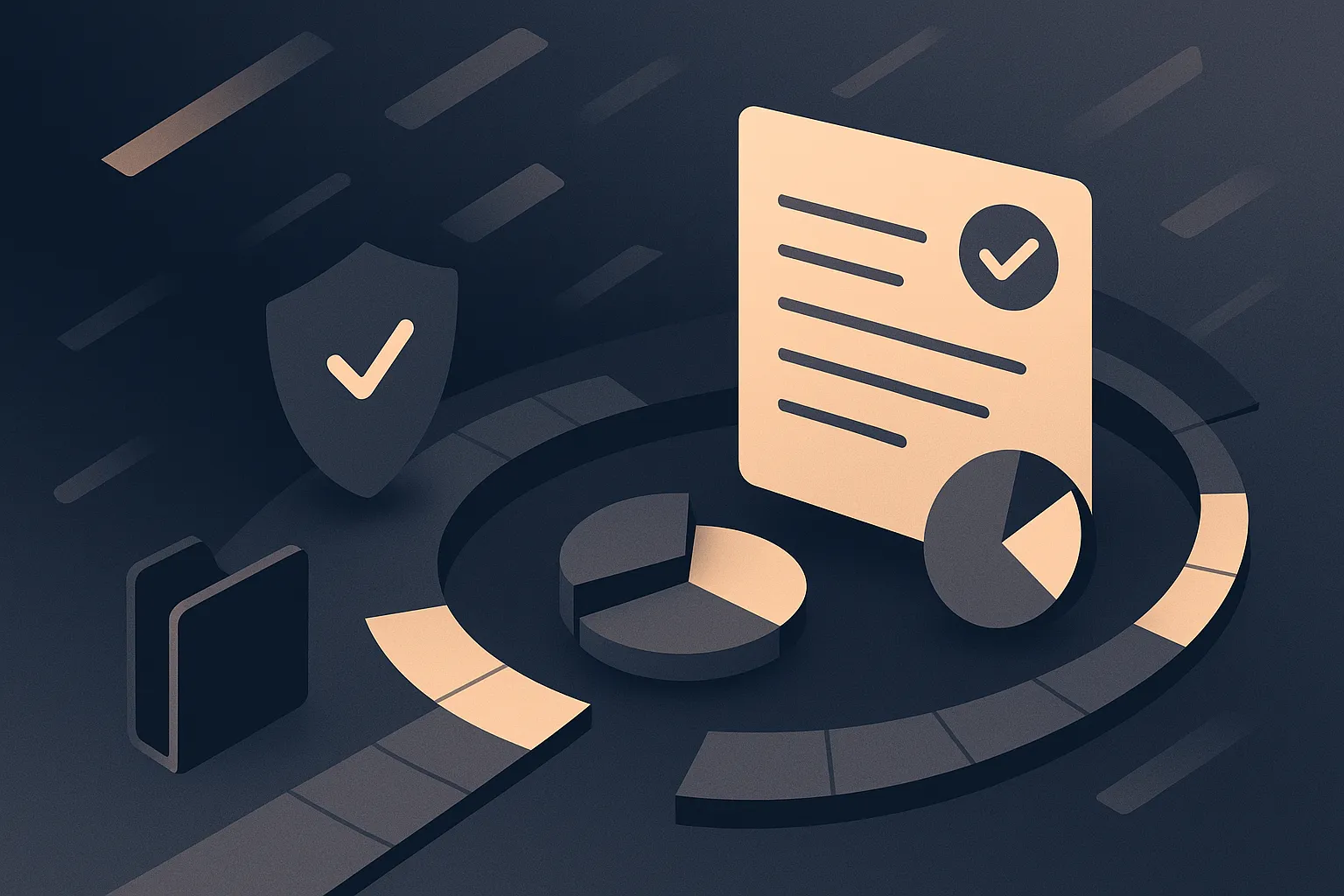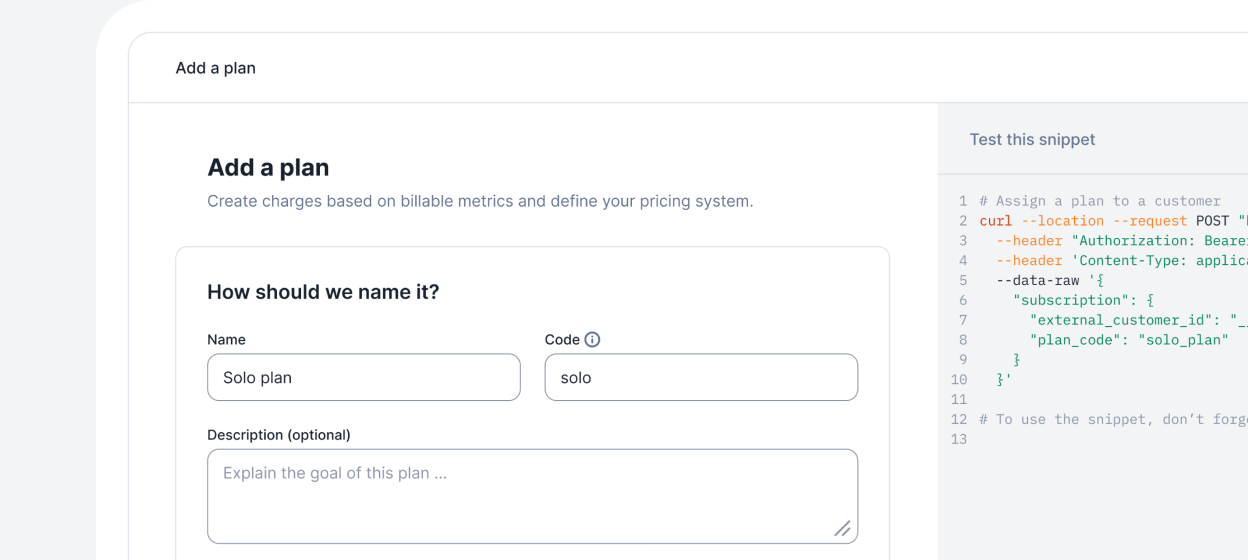What is billing compliance and how does it work?

For subscription-based and SaaS companies, billing compliance encompasses the complex intersection of billing, accounting, and regulatory requirements that ensure accurate revenue collection, proper financial reporting, and adherence to applicable regulations. The enterprise billing solutions market is experiencing significant growth, with projections showing expansion from $4.57 billion in 2024 to approximately $5.29 billion in 2025 at a 15.7% CAGR, highlighting the increasing importance of sophisticated billing systems for compliance [1].
Why Billing Compliance Matters for SaaS Companies
Subscription businesses face unique challenges that make traditional one-time billing approaches inadequate. Unlike transactional businesses where payments occur once, SaaS companies must manage recurring billing cycles, multiple pricing models, and complex revenue recognition requirements across different jurisdictions.
Enterprises are increasingly demanding billing systems offering real-time processing, automated workflows, regulatory compliance, and enhanced reporting to support complex operations and improve customer experience [2]. This demand is driven by 50% of SaaS providers relying on user-based pricing, 38% charging based on usage, and 40% implementing value-based pricing [3].
Financial Accuracy and Transparency
Accurate billing data serves as the foundation for strategic business decisions. When companies can't answer questions about quarterly growth, revenue retention, or customer expansion, it stems from inadequate billing compliance systems. Companies with sophisticated usage-based billing systems see 32% higher net revenue retention compared to those with basic tracking capabilities [4].
For companies handling high-volume billing scenarios, infrastructure capabilities become critical. Lago processes up to 15,000 billing events per second, demonstrating the scale required for enterprise-grade billing compliance.
Regulatory Requirements
Modern SaaS companies must navigate an increasingly complex regulatory landscape with requirements varying by jurisdiction, industry, and customer type. Key compliance frameworks include:
Payment Card Industry Data Security Standard (PCI DSS)
Credit card processing remains central to subscription businesses. PCI DSS mandates secure environments for companies accepting, processing, storing, or transmitting credit card information. Non-compliance carries severe penalties, including fines up to $500,000 per incident, making compliant billing platforms essential.
General Data Protection Regulation (GDPR)
GDPR affects any company serving EU residents, requiring comprehensive data management practices including:
- Data minimization: Collecting only necessary personal data
- Explicit consent: Clear, unambiguous user consent for data collection
- Data protection: Robust security measures including encryption and incident response
- Access and erasure rights: Mechanisms for users to access or delete their data
California Consumer Privacy Act (CCPA)
CCPA applies to businesses meeting specific thresholds:
- Annual gross revenues exceeding $25 million
- Possession of personal information from 50,000+ consumers, households, or devices
- Deriving 50%+ of annual revenues from selling consumer personal information
Violations result in civil penalties up to $2,500 per unintentional violation and $7,500 per intentional violation.
Revenue Recognition Standards (ASC 606/IFRS 15)
Modern SaaS businesses with complex pricing models face intricate revenue recognition requirements. 38% of SaaS companies now bill based on actual software usage, with companies employing usage-based pricing reporting significant revenue growth [5]. This shift requires sophisticated systems capable of recognizing revenue accurately across different billing cycles and performance obligations.
Modern Billing Compliance Challenges
Usage-Based and Metered Billing Models
59% of software companies expect usage-based approaches to grow as a percentage of overall revenue in 2025, representing an 18% rise from 2023 [6]. This trend creates new compliance challenges:
- High-volume event processing: Systems must handle 100,000+ events per second while maintaining sub-second latency for real-time reporting and processing millions of usage events per hour
- Multi-dimensional tracking: APIs, storage, data transfer, and compute hours must be tracked simultaneously
- Dynamic pricing calculations: Progressive billing, tiered usage, and hybrid models require sophisticated aggregation capabilities
Tax Compliance Complexity
Global SaaS operations face varying tax obligations. EU VAT requirements mandate charging based on customer location rather than company location, with rates varying across 27 member states. U.S. sales tax complexity intensifies with state-by-state variations and multiple jurisdictions within single ZIP codes.
How Billing Automation Ensures Compliance
Automated Revenue Recognition
Modern billing systems recognize revenue over subscription periods rather than at payment points, critical for businesses with prepaid or usage-based models. These systems provide real-time reporting on recognized and deferred revenue with comprehensive audit trails proving compliance with accounting standards.
Data Security and Monitoring
Essential security features include SOC 2 Type II compliance, GDPR compliance, PCI DSS certification, data encryption at rest and in transit, and comprehensive audit trails. Advanced systems implement role-based access controls and automated monitoring with real-time alerts for compliance violations.
Enterprise Billing Infrastructure
For companies requiring robust billing infrastructure, Lago's platform offers comprehensive solutions supporting all modern pricing models including subscriptions, usage-based billing, prepaid credits, and add-ons with automatic invoice generation.
Best Practices for SaaS Billing Compliance
Implement Automated Billing Systems
Automated systems eliminate human errors while ensuring accuracy across customer information and regulatory requirements. Companies that automate usage-based billing see up to 40% faster time-to-cash and 25% fewer billing errors [7].
Understand Your Regulatory Landscape
Regulations change frequently and vary by jurisdiction. Regular compliance audits help identify areas of concern before they become major issues, ensuring systems remain current with applicable requirements.
Invest in Scalable Infrastructure
The global enterprise billing software market is projected to grow from $15 billion in 2025 to around $40 billion by 2033, indicating the critical importance of scalable solutions [8]. Choose platforms that can handle peak event volumes while maintaining data integrity and compliance requirements.
Maintain Customer Transparency
Provide clear, detailed invoices and communicate pricing changes promptly. Transparent billing practices reduce disputes and support regulatory compliance while improving customer satisfaction.
Billing compliance represents a strategic advantage for SaaS companies, enabling accurate financial reporting, regulatory adherence, and operational efficiency. As pricing models continue evolving toward usage-based approaches, investing in sophisticated billing infrastructure becomes essential for sustainable growth.
Ready to implement compliant billing infrastructure? Lago offers comprehensive billing automation supporting all modern pricing models with enterprise-grade compliance features. Contact our team to learn how we can help streamline your billing operations while ensuring full regulatory compliance.
Citations
- [1] https://thebusinessresearchcompany.com/report/enterprise-billing-solutions-global-market-report
- [2] https://openpr.com/news/4162926/key-trends-influencing-the-growth-of-the-enterprise-billing
- [3] https://invespcro.com/blog/saas-pricing
- [4] https://scalevp.com/insights/the-opportunity-in-usage-based-billing-infrastructure
- [5] https://zylo.com/blog/consumption-based-pricing-saas
- [6] https://revenera.com/blog/software-monetization/usage-based-pricing-saas-ai
- [7] https://abaxus.software/blog/2025-06-02/5-key-features-of-usage-based-billing-software
- [8] https://businessresearchinsights.com/market-reports/enterprise-billing-solutions-market-117397
Links
Focus on building, not billing
Whether you choose premium or host the open-source version, you'll never worry about billing again.
Lago Premium
The optimal solution for teams with control and flexibility.

Lago Open Source
The optimal solution for small projects.

